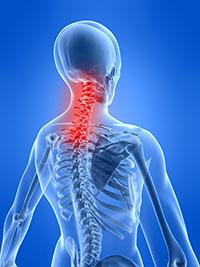 There are over 600 diseases of the nervous system, including brain tumors, Alzheimer’s disease, meningitis and carpal tunnel syndrome. If you suspect that your symptoms are characteristic of a neurological condition, you need a trusted neurologist who has special training and knowledge to help diagnose and treat the problem. With the hundreds of nervous system disorders out there, it’s important that we are able to pinpoint whether your symptoms are neurologically rooted. Here are some of the diagnostic testing we offer to give you the answers and peace of mind you’ve been looking for:
There are over 600 diseases of the nervous system, including brain tumors, Alzheimer’s disease, meningitis and carpal tunnel syndrome. If you suspect that your symptoms are characteristic of a neurological condition, you need a trusted neurologist who has special training and knowledge to help diagnose and treat the problem. With the hundreds of nervous system disorders out there, it’s important that we are able to pinpoint whether your symptoms are neurologically rooted. Here are some of the diagnostic testing we offer to give you the answers and peace of mind you’ve been looking for:Electroencephalography (EEG)
An EEG records electrical activity in the brain. With the use of electrodes, which are placed on a patient’s scalp, a computer records brain activity. There are several types of EEGs that we offer, including our outpatient routine EEG, ambulatory prolonged EEG, and overnight inpatient continuous video EEG. If you’ve already scheduled your upcoming EEG, here’s what you should expect from your appointment:
-
We will measure your head and the electrodes will be placed on your scalp (don’t worry—this doesn’t hurt at all!)
-
We will ask you to lie down and get comfortable (easy enough, right?)
-
We may ask you to take deep or fast breathes during your EEG, but otherwise you can lie down and relax for the majority of your visit.
- The test will take about 90 minutes
We typically run overnight EEGs to record seizure disorders. For these tests we recommend bringing someone with you, as well as packing food and entertainment (you will be here a while and we don’t want you to get bored!).
Ambulatory EEGs record brain activity for 24 to 72 hours. We apply the electrodes and then ask the patient to complete a diary of daily activities and symptoms throughout this time period. You can go about your standard routine; however, strenuous exercise isn’t recommended. Afterwards, you will return to our office so we can remove the electrodes and look at the results.
Nerve conduction and electromyography study (EMG/NCV)
An electromyogram studies the electrical activity of the muscles during rest and contraction. We may recommend this testing if you are experiencing pain or numbness in your legs. These tests will also check the health of your spinal nerves, as well as the nerves in your arms and legs. This test can pinpoint tissue and nerve damage, herniated discs, carpal tunnel syndrome and Guillain- Barré syndrome.
Vagus nerve stimulation programming for epilepsy
Vagus nerve stimulation (VNS) helps prevent seizures through the use of mild electrical pulses that are sent from the vagus nerve to the brain. This device is similar to a pacemaker and is implanted in your chest. Then the wire is implanted around your vagus nerve in the left side of the neck. Both the strength and timing of the electric pulses are programmed by us and are based on your specific health needs. This is a simple procedure that can sometimes be offered as an outpatient treatment.
These are only some of the diagnostic testing we offer our patients. If you need to schedule an appointment with your neurologist, call us at (847) 929-4420.

